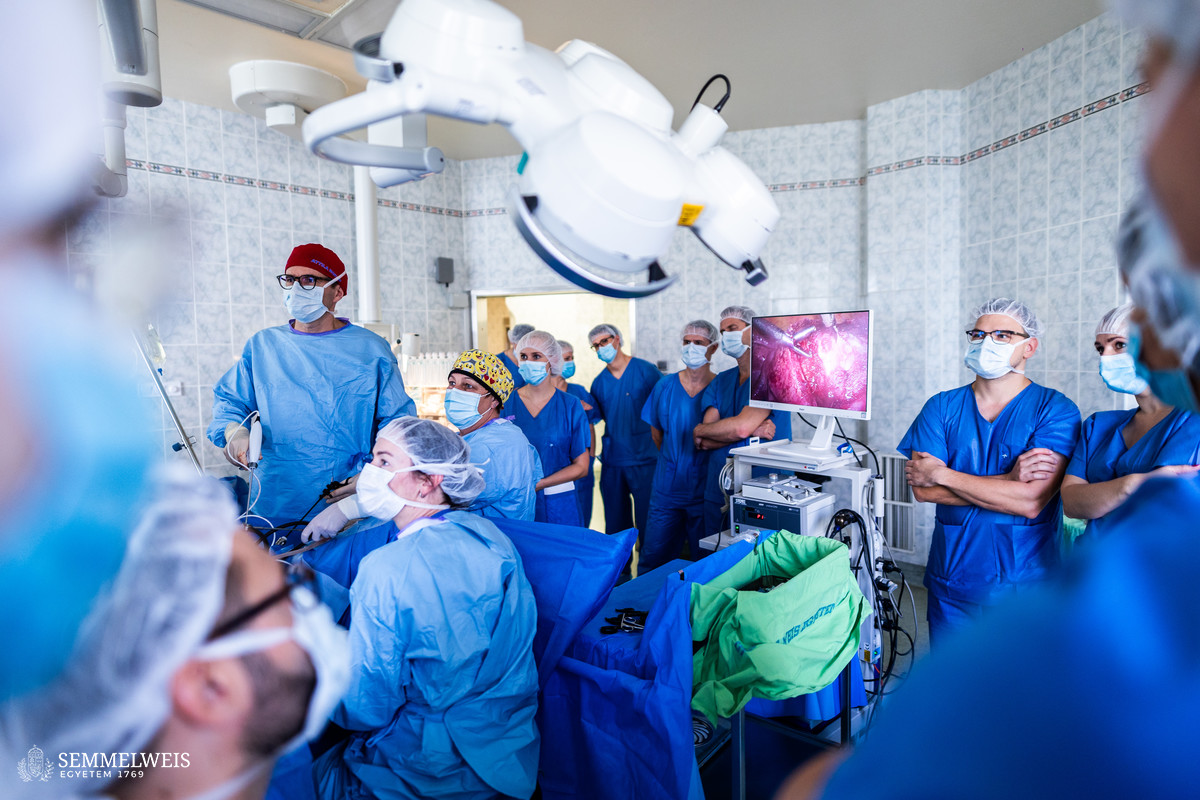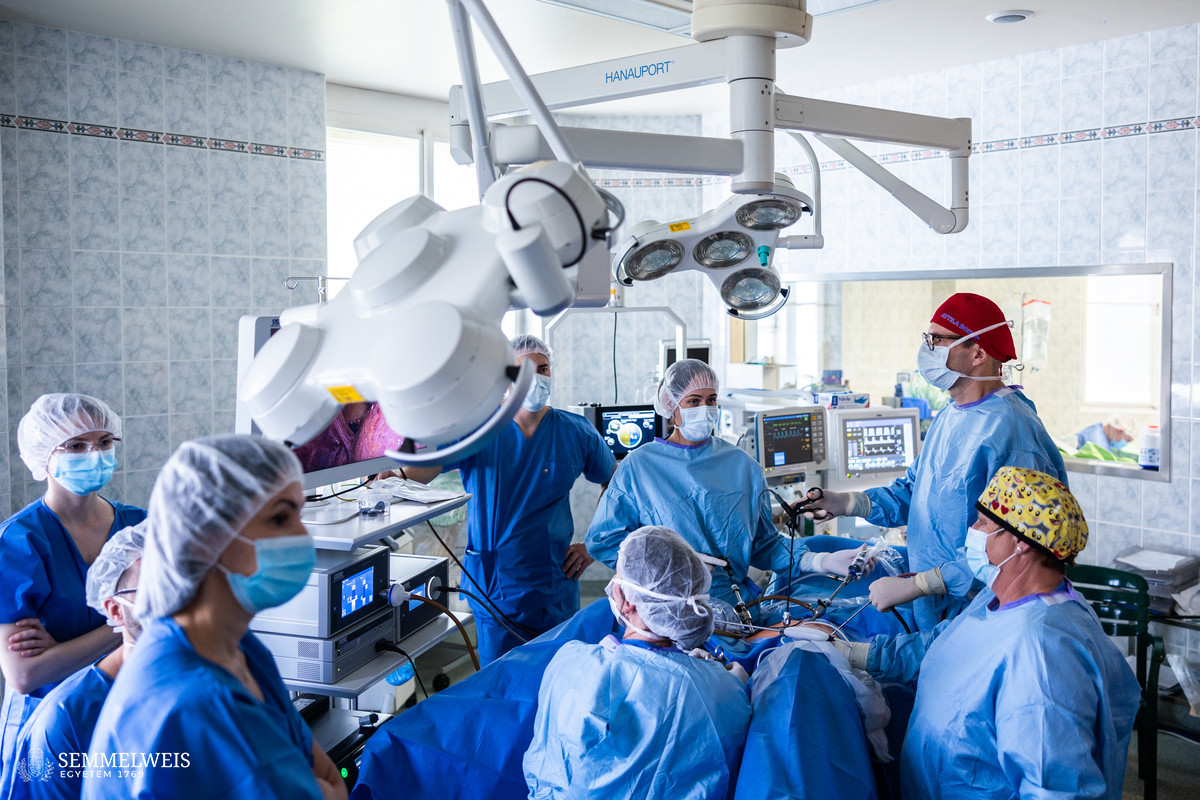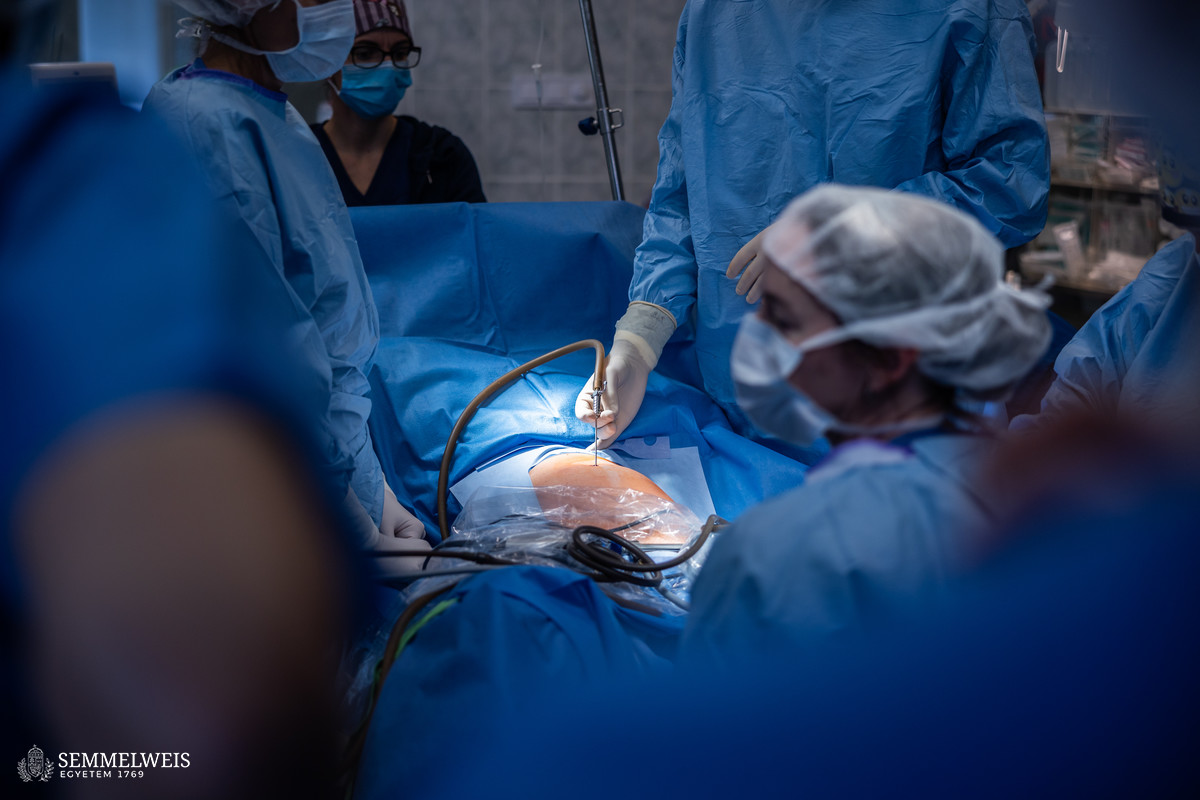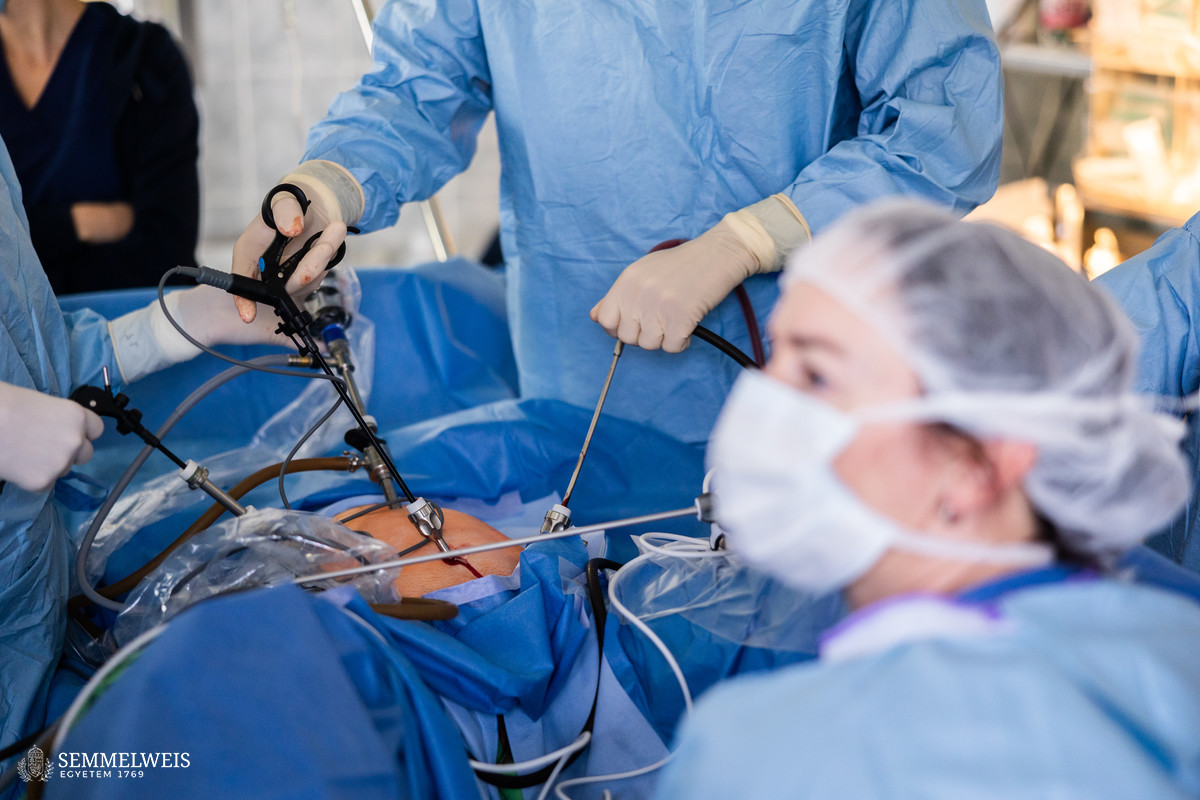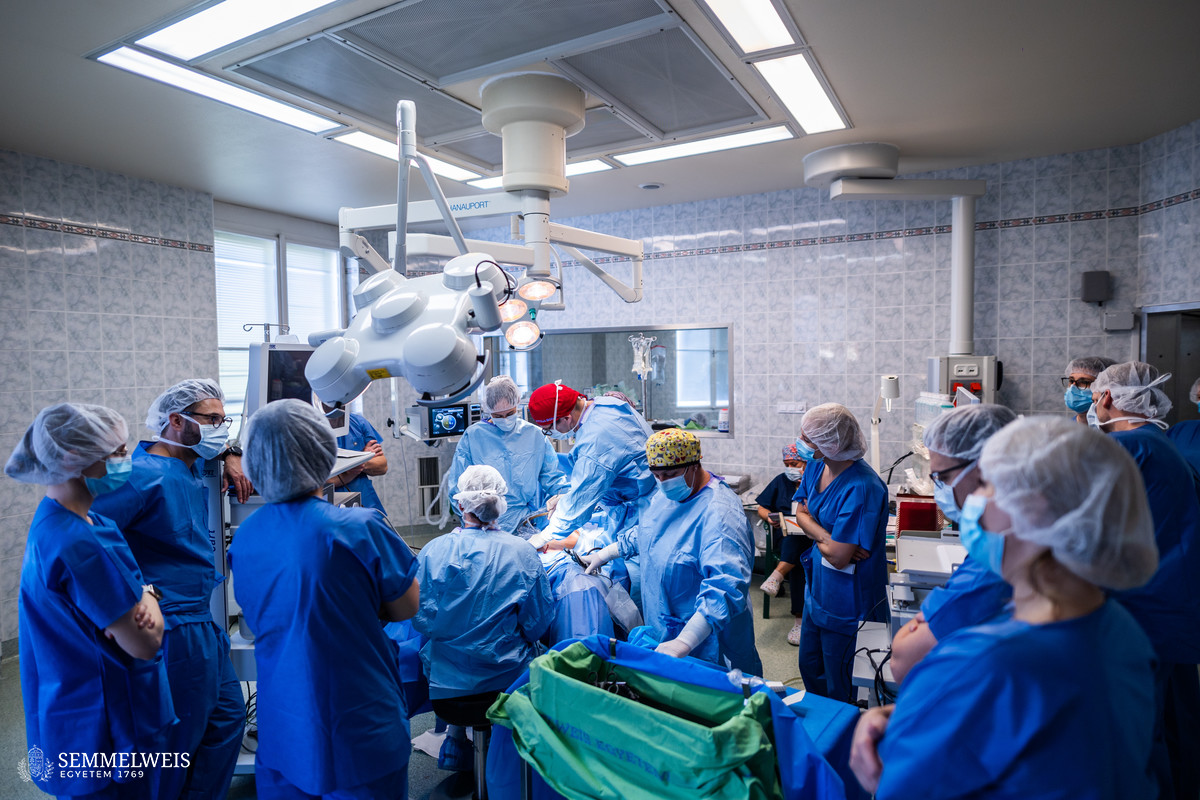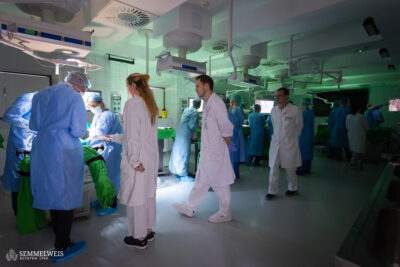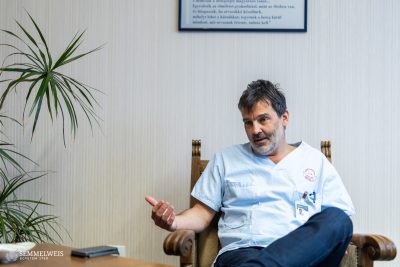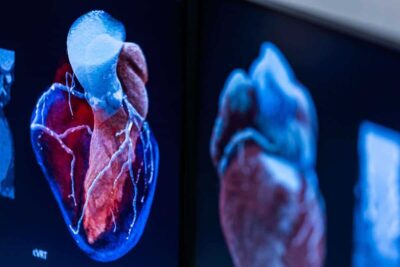International training courses on the surgical therapy of severe, deeply infiltrating endometriosis affecting the colon are regularly organized at the Endometriosis Center of the Baross street section of the Department of Obstetrics and Gynecology. At least 200 of these complex, highly specialized procedures are performed there every year, which makes it the third largest center of its kind in Europe. The training courses on the new and unique surgical procedures developed at the Endometriosis Center – surgical interventions through natural orifices instead of conventional laparoscopic surgery – and the department’s neuropelvic program are internationally popular, with endometriosis specialists from the Czech Republic, Poland, Denmark, and Austria regularly attending the courses.
The last course in October was the first to be attended by participants from the Baltic states, including the director and head physician of the Gynecology Department of Tallinn University, which is a significant step because this technique is not yet available in the region and there is no special care for these patients, stressed Associate Professor Dr. Attila Bokor, Head of the Endometriosis Center and course leader. In the future, specialists from the Baltic countries will be able to use the knowledge gained here as a basis for starting surgical treatment of endometriosis patients in their own country.
During the two-day hands-on training, the 16 participants learned the technique in practice, performing seven surgeries, and the feedback clearly shows that they found the knowledge gained here useful, so much so that they have already agreed to continue the training in the spring.
Cataloging the experience of more than a thousand colorectal endometriosis operations performed so far at the Endometriosis Center of the Department of Obstetrics and Gynecology as well as of serious cases of endometriosis that have occurred here has resulted in a considerable amount of data being accumulated on the disease. The center is also involved in a number of international multicenter studies, including the world’s largest endometriosis study within the framework of the FEMaLe (Finding Endometriosis using Machine Learning) Consortium, for which data is being collected from patients partly via the free Lucy app in order to map endometriosis as thoroughly as possible. Following the training, the app and the research have now been extended to the Baltic states, so data collection will start at Tallinn University and the Technical University of Riga, Dr. Attila Bokor added.
Anita Szepesi
Translation: Dr. Balázs Csizmadia
Photos by Bálint Barta – Semmelweis University
